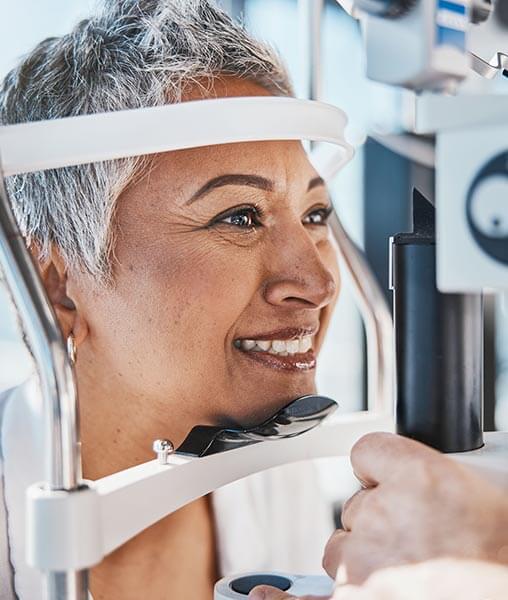Bacterial Infection
A bacterial eye infection may be the result of trauma, eye surgery, contact lens wear, immune deficiencies, or other diseases that result in bacterial growth. The two most common bacterial infections of the eye are conjunctivitis, commonly known as pink eye, and blepharitis, a chronic inflammation of the eyelids.

With bacterial conjunctivitis the whites of the eye turn red due to inflammation. It will also burn and give off a yellow discharge or pus; this can harden on your eyelids and lashes overnight and make your eye difficult to open in the morning. There are different forms of conjunctivitis, but the bacterial form is the only one that can be treated with antibiotics. We will prescribe you an antibiotic eye drop to treat pink eye, and you should be completely free of infection in only a few days. With blepharitis, the eye becomes irritated, red and tearing. It often occurs when tiny oil glands around your eyelashes becoming clogged and then become irritated and sore. These eye infections can occur in any age group of patients, and if not treated, benign infections can develop into serious conditions. People who have undergone eye surgery or experienced trauma to the eye are at higher risk for infection. It is important to keep this area very clean in order to reduce the likeliness of contracting this infection.
A bacterial infection is diagnosed through a comprehensive eye exam. Based on the severity of the infection, a sample of the bacteria may be sent to pathology for identification. We typically treat the eye using topical anti-infective solutions, like an ointment or eye drops. With any infection, it is important not to rub your eyes; this will contaminate your hands and could spread the infection to others. Many infections, like pink eye, are highly contagious, so hand washing is always recommended throughout the day. It is also important to remember to wash your pillowcases after you are diagnosed in case the infection has spread bacteria. Throwing out your contact lenses and refraining from wearing them until you are done taking antibiotics is necessary for the infection to be fully eradicated.

